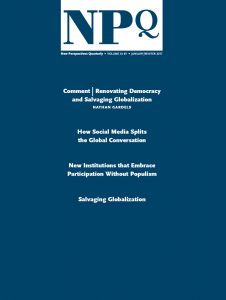Good for Business, Bad for Asian Americans? Affirmative Action and the Lawsuit against Harvard University
Human heterogeneity in culture, race, gender, sexuality, and any other characteristics – commonly referred to as “diversity” – is often lauded in organizations across the U.S. for its various positive outcomes. While hiring or recruiting a diverse pool of people is arguably an ethical imperative, much of the narrative around diversity instead revolves around how it’s “good for business”. For example, a recent Forbes article argues that “diversity and inclusion are essential to business success”, and Amazon’s website claims that...



















1754-9469/asset/society_affiliation_image.gif?v=1&s=9197a1a6ba8c381665ecbf311eae8aca348fe8aa)
1728-4457/asset/PopulationCouncilLogo.jpg?v=1&s=03074651676b98d6b9d0ef1234bd48fe7ff937c3)